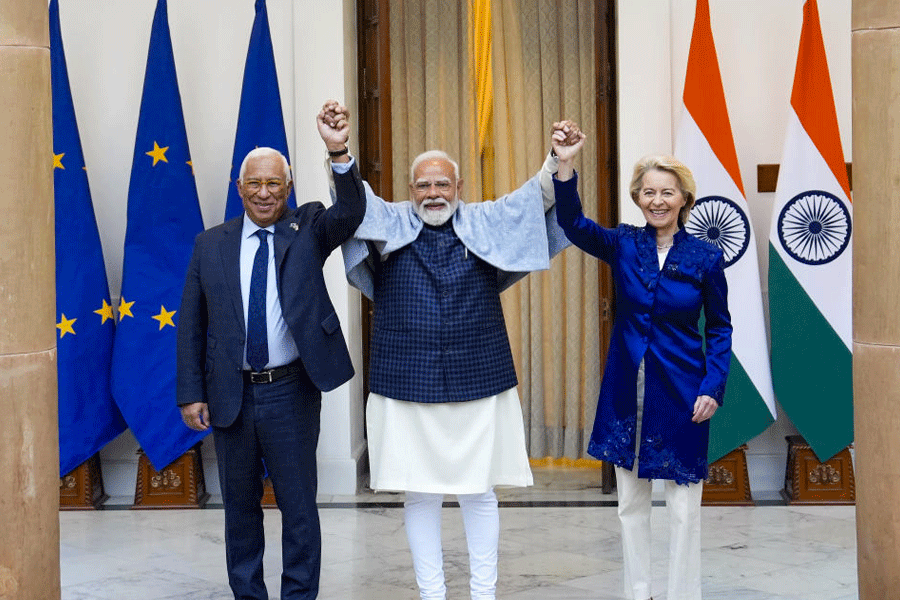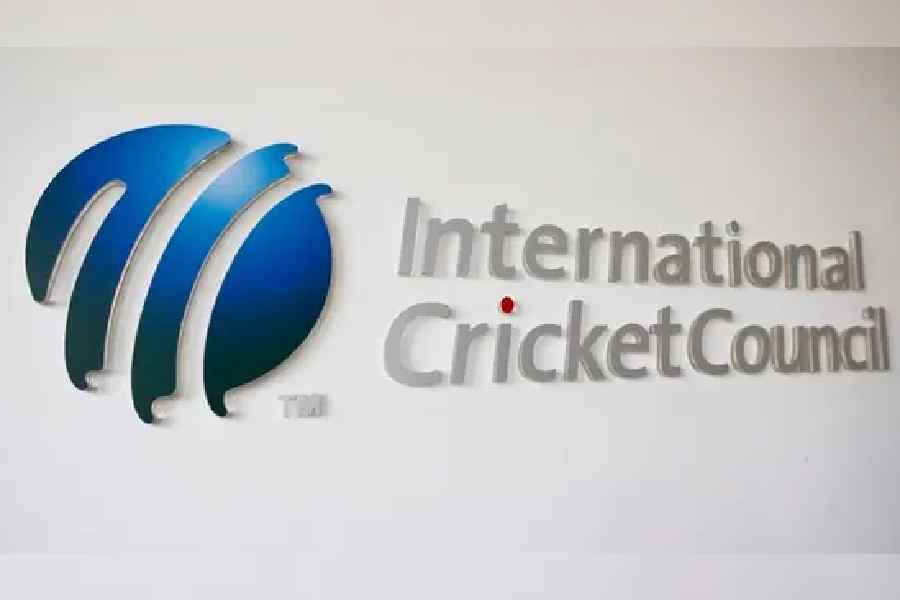Are all Indians as obsessed with board exams as we are in Bengal? Through April and May, various boards publish their results. Each announcement is followed by a rash of media reports, with the kind of hyperanalysis commonly applied to cricket scores. Did girls fare better than boys? Or the districts than the city? Were the top marks fractionally less than last year, or the top scorers marginally more in number? Did certain hallowed schools blot their record, and if so why?
There are visuals of young people, patently ill at ease, being fed sweets by their mothers — how many times for how many cameras, one wonders. There are hair-raising accounts of how many hours a day the top scorers swotted. (We hear discreetly little of how many tutors the parents engaged.) Some of these youths reappear on TV commercials to declare how they owe their results to certain help books. I hope they sting the publishers for sums in six figures. Nothing less would compensate for the way they are being compromised.
I would not seem ungracious. As a lifelong teacher, I feel nothing but affection for these youngsters, wish them nothing but the best. But I also feel a deep concern — for those who make it to the media and those who don’t.
Each outbreak of results casts countless families in deep gloom. Their children have not failed the exam: they have scored brilliantly, but fractionally less than fifty or a hundred others of the lakhs that sat the exam. In the bizarre phrase that mystifies Martians, they have not managed to ‘stand’. They are filled not with confidence but with shame. I have seen a boy cross-examined on TV for ranking third in the 10+ exam but ‘only’ eleventh in the 12+.
In moments of outrage, I feel it should be a crime to announce someone’s exam results in the media: it is a grotesque violation of privacy. That an irresponsible society calls for it is no excuse.
Over 8.5 lakh students sat for the West Bengal Uchcha Madhyamik this year. Common sense suggests that some 1%, or 8,500, must be in the highest bracket of exam-passing merit. Which twenty or fifty or hundred of them find themselves at the favoured end of this horizontal ladder is the merest luck of the draw. Moreover, that hypothetical 8,500 will not occupy the top 8,500 positions. Some may land in the second division or, however rarely, even fail.
To obviate the tyranny of exam marks, enlightened societies use grades instead. In India, the argument against grades is that board marks guide college admissions. This was never entirely true: where demand is greatest, as for medicine, engineering or the most sought-after ‘general’ courses, special entrance tests were and are the norm. Now that board exam marks scale the heights, imposing cut-offs of 100%, centralized admission tests are being introduced for all college courses, most notably the Common University Entrance Test. Every elite private university, today the first choice for an exclusive education, has its own entrance procedure.
In other words, if the pressure of board exams is easing at all (which is by no means certain), that is more than outweighed by the battery of other hurdles to any kind of meaningful training and career. Most student suicides are among aspirants to professional courses, while preparing for the ordeal or in the burn-out after admission. In its brief history to date, the medical NEET has already proved a greater torment than the engineering JEE. Coaching institutes clearly feel that to give value for money, their regime might drive some trainees to despair. Appallingly, many parents think they owe it to their offspring to consign them to this hell.
The solution does not lie in psychiatric counselling, though victims of the system might badly need it. It does not lie in tinkering with the curricular structure — for instance, by allowing students to opt out at any point of the course with some kind of certification, as the National Education Policy enjoins. Unlike many colleagues, I actually consider that a good idea; but such mid-point departures will always carry the stamp of failure. As long as there are more rungs to the ladder, students will undergo untold stress to climb them, and a different kind of stress if they cannot.
Most emphatically, the solution does not lie in multiplying private universities open to a minute fraction of our youth. Affluent middle-class families with two or three children incur huge debts to send them there. For the less affluent (further disadvantaged by the decline of the government school system), entry to the few prized public institutions becomes more stressful than ever. The institutions themselves come under mounting pressure to perform beyond capacity.
The only solution is for the government, Central and state, to invest in education as they invest in roads and energy and airports, to say nothing of the Central Vista, bullet trains and the world’s tallest statue. We need to exponentially expand and upgrade our public university system, which, in turn, calls for quantum improvement of government schools (I don’t mean high-end Kendriya Vidyalayas). The insane pressure of exams, whether boards or admissions, will ease only when there are enough public institutions commanding people’s trust and convincingly preparing our youth for a fulfilling life at affordable cost. The deficit in public trust is huge and partly undeserved: against all odds, our best public institutions still perform creditably, even if we exclude the pampered IITs and IIMs. But there too, fees are mounting beyond the unstressed reach of more and more people.
I know of a little boy who fared badly in that affront to childhood, the Class I admission test. Back with his waiting father, he said, “Baba, ami herey gechhi” (“Baba, I’ve lost”). As our children grow up, we afford them endless opportunities to stare defeat in the face in the exam hall. But the real losers are ourselves and the land we live in.
Sukanta Chaudhuri is Professor Emeritus, Jadavpur University











